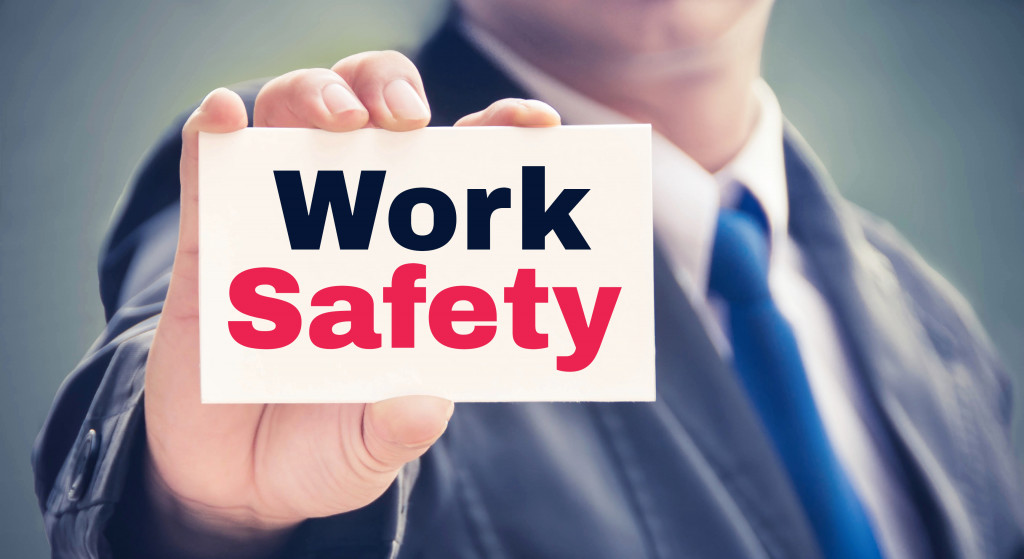Employees dedicate a lot to getting their work done. It could either be their time or company resources. In return, it is the employer’s responsibility to create a conducive environment for their workers. It’s only proper for employers to give the best they can to uphold their employees’ welfare.
When you assign employees to fieldwork, a situation that might get any employee at increased risk, their work will have them constantly exposed to different risks. According to the United States Bureau of Labor Statistics, in 2020, there were 3.4 fatalities per 100,000 full-time workers in the United States.
Many dangers come with working in the field. These include working with heavy machinery, being exposed to harmful chemicals, and even dealing with the elements like extreme heat or cold. As an employer, it’s your responsibility to ensure that your employees are safe while working. Here are some tips on how you can protect your employees assigned in fieldwork:
1. Provide proper training and equipment.
Some workplaces present more dangers than others. If your employees are assigned to work in the field, it is essential to take measures to protect them from potential risks. One way to do this is by providing proper training.
Employees should be familiar with the hazards they may encounter while on the job, and they should know how to stay safe. They should also be aware of the safety procedures in place in case of an accident.
In addition to training, you should also provide the proper equipment. This may include hard hats, safety glasses, and work gloves. By taking these precautions, you can help keep your employees safe while working in the field.
2. Keep open communication with your employees.
In any company, communication is key to success. This is especially true for businesses with employees who work in the field. It can be challenging to stay on the same page, coordinate schedules, and resolve issues without regular communication. However, there are a few simple steps that you can take to keep the lines of communication open.
First, make sure to schedule regular check-ins with your field employees. These can be done in person or over the phone, but they should happen regularly. Secondly, encourage your employees to speak up if they have any concerns or questions. This will help ensure that everyone is on the same page, and it will allow you to address any issues early on.
Finally, be sure to follow up after each conversation. This will show your employees that you value their input and that you are committed to keeping the lines of communication open. By following these simple steps, you can help to protect your field employees and keep your business running smoothly.
3. Provide health and legal assistance.
When employees are out in the field working, risk exposures are inevitable. They might get injured on the job. This is why it’s essential to provide health and legal assistance to your employees.
For example, your employee gets involved in a motorbike accident. If they had comprehensive health insurance, the policy would cover the cost of their hospitalization and treatment. And in regard to legal assistance, if your employee sustained an injury in the incident, they would be able to file a claim against the other party involved. Perhaps with the help of a competent motorcycle accident attorney, they would be able to receive compensation for the damages.
Providing health and legal assistance to your employees is vital to protecting them while they’re working in the field. Taking these measures can help ensure that your employees are taken care of if something happens.

4. Advocate for better working conditions.
Most employees look for employers that care about their health and well-being. And their safety at work is part of their health and well-being. If you want to attract and retain the best talent, you need to advocate for better working conditions.
One way to do this is by lobbying for government regulation that would improve safety standards in the workplace. For example, you could lobby for the introduction of safety nets on construction sites. This would help prevent injuries if workers were to fall from a height.
Another way to advocate for better working conditions is by working with your employees to improve safety in the workplace. This could involve conducting regular safety audits and implementing new safety procedures. By taking these measures, you can show your employees that you care about their safety and that you’re committed to improving their working conditions on the field.
5. Offer incentives for safety compliance.
One way to encourage your employees to follow safety procedures is by offering incentives for compliance. For example, you could offer a bonus to employees who don’t have any accidents or injuries over a specific time. This would give them the initiative to be more careful while they’re working.
Another way to offer incentives is by providing rewards for employees who develop new safety ideas. This would encourage them to be proactive about safety in the workplace. And it would also give you some fresh ideas that you can implement to improve safety in your business.
By offering incentives for safety compliance, you can show your employees that you’re committed to keeping them safe. And you can also encourage them to be more proactive about safety in the workplace.
By following these tips, you can help create a safer environment for your employees who work in the field. You can also help ensure that they can perform their jobs properly and safely.

